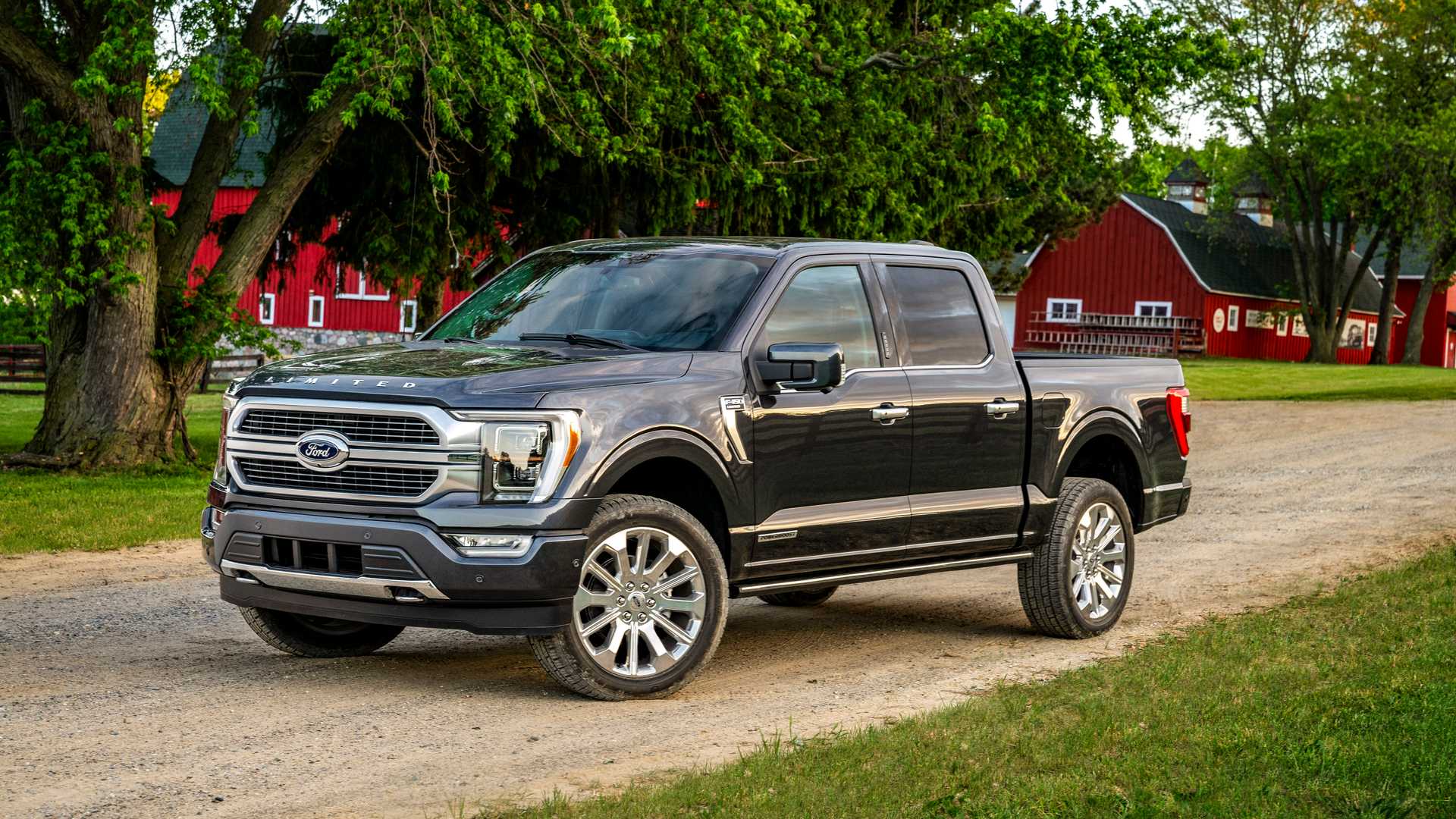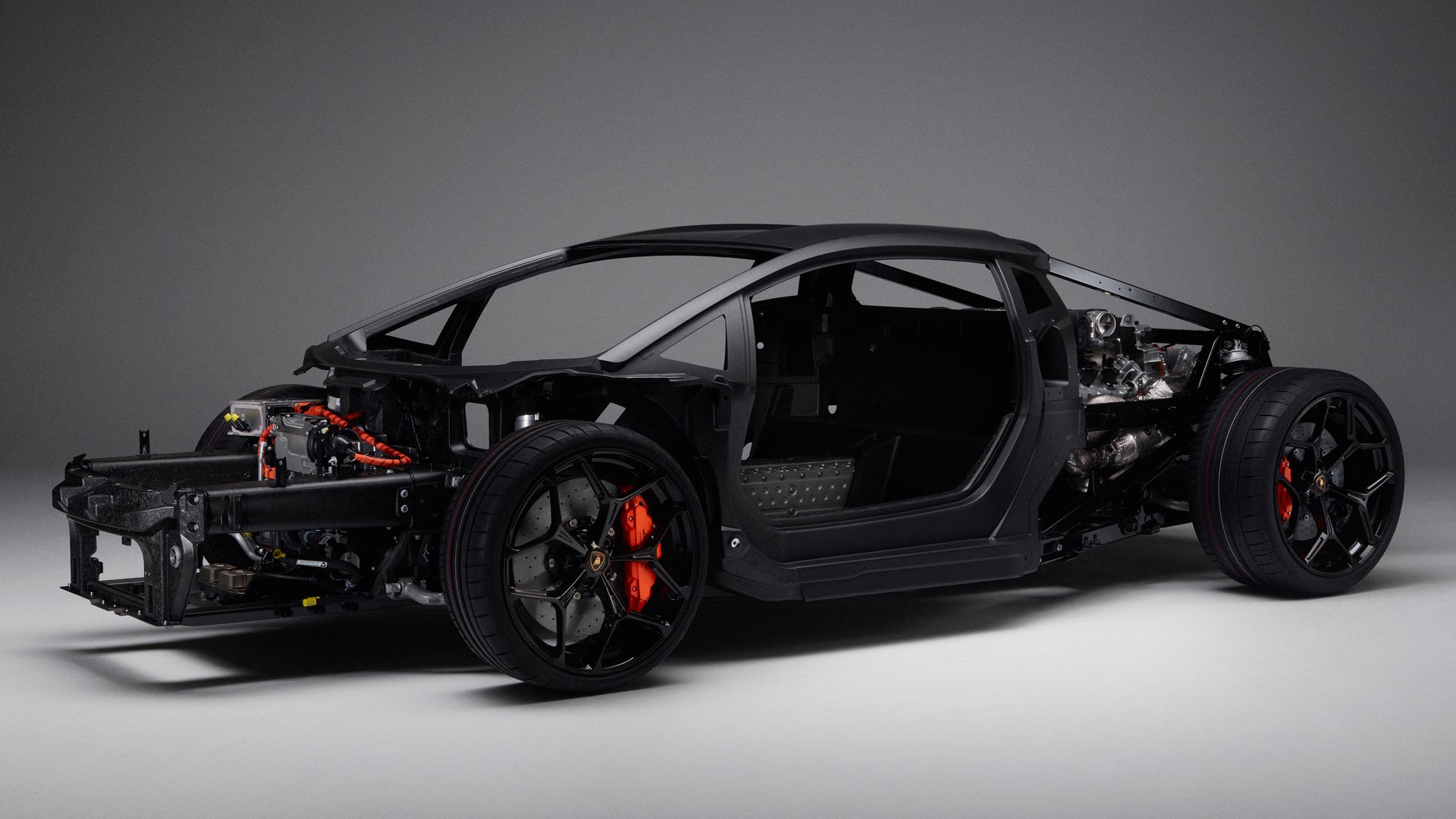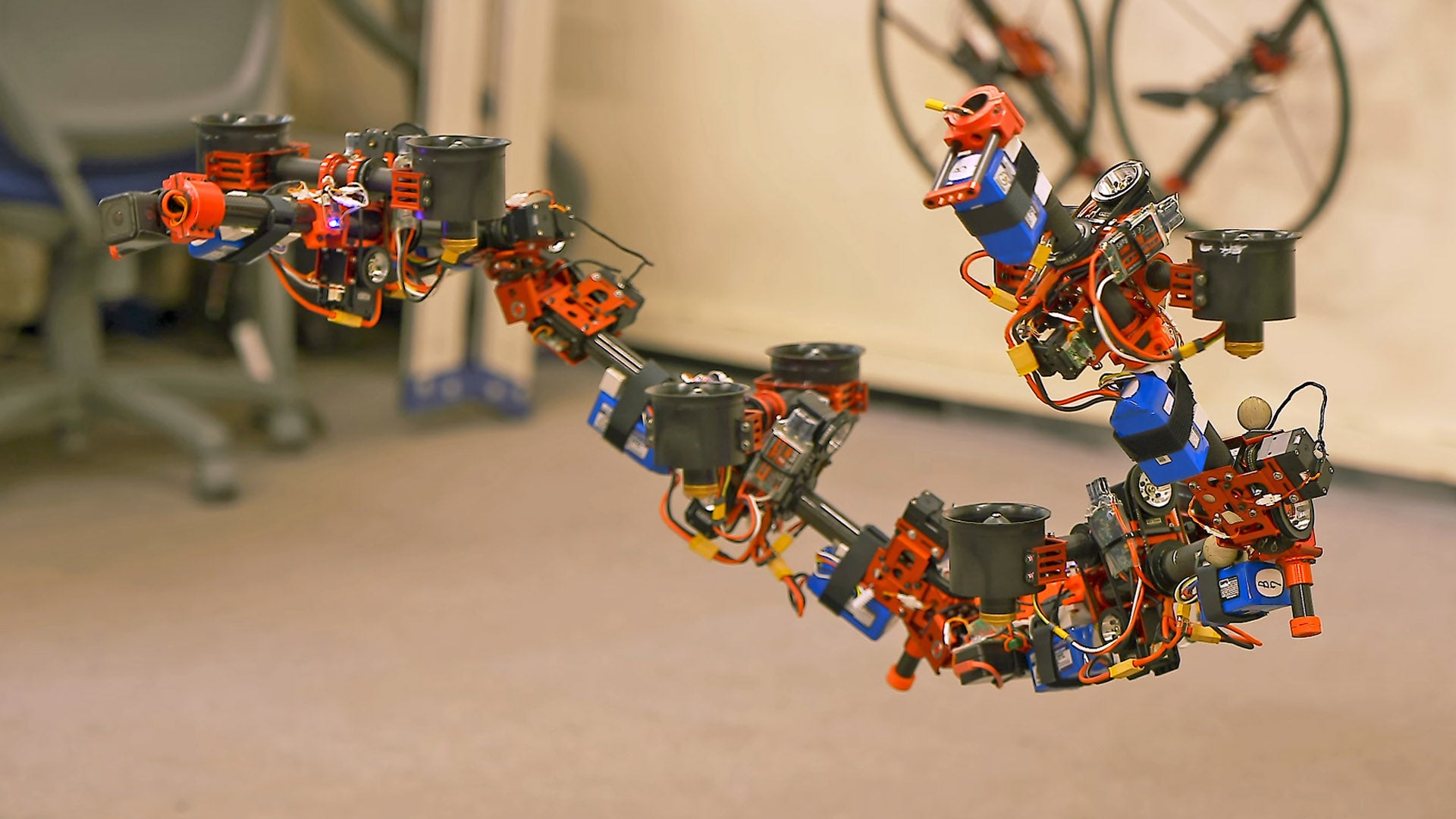The PowerBoost-equipped 2021 Ford F-150 isn't the first hybrid pickup. However, it is the first to maximize the potential of battery assistance both in terms of power output and onboard electric supply. Now that Ford has released official horsepower and torque figures for the electrified truck, we can observe and analyze darn near everything there is to know about the top-spec F-150 powertrain, so let's get to it.
We'll start with its 3.5-liter, twin-turbo V6 that utilizes a 1.5-kilowatt-hour battery for a dose of extra power. It's essentially an EcoBoost that has been modified to work in harmony with said battery and a 35-kilowatt electric motor, all while transferring power to the wheels through a 10-speed automatic transmission. The powertrain is responsible for providing juice to the Pro Power Onboard generator, which we'll get to later, and it also performs regenerative braking to harvest otherwise-wasted energy.
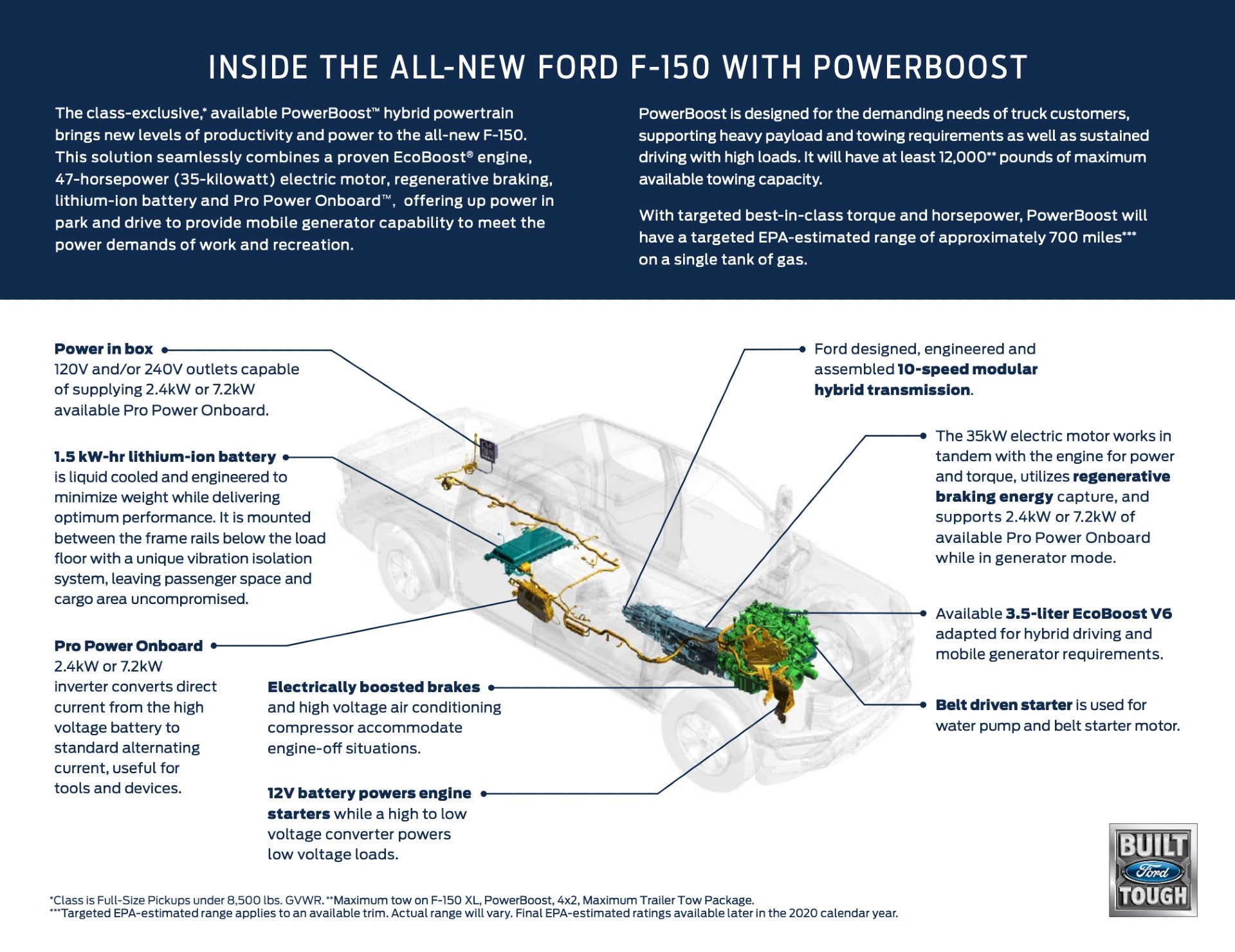
The F-150 PowerBoost touts best-in-class ratings of 430 horsepower and 570 pound-feet of torque. That's 10 more horsepower than GM's 6.2-liter V8 provides for the Chevy Silverado and GMC Sierra, and it's 70 pound-feet more than the F-150's 3.5-liter EcoBoost, which is now runner-up in the category.
Of course, we aren't counting the Ram TRX or pending Ford Raptor since, really, they're on a different plane. If you want to compare apples to oranges, then the 702-hp Ram has just 8,100 pounds of towing capacity and 1,310 pounds of max payload.
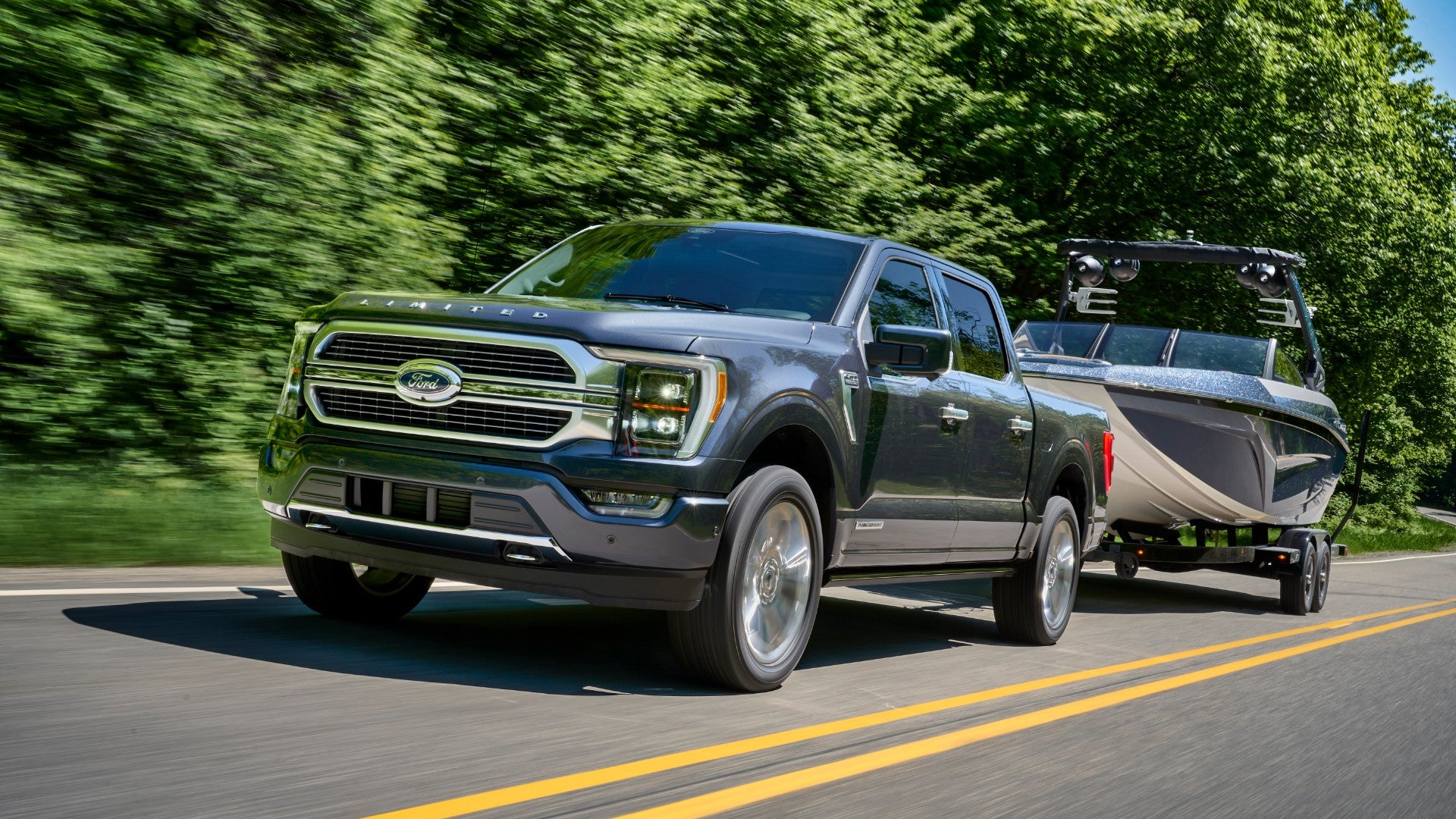
The PowerBoost variant, despite its ouput advantage over the comparatively traditional EcoBoost, falls short of providing the F-150's top towing capabilities. That said, it can still pull 12,700 pounds behind it—about on par with the Ram 1500's max of 12,750. Compare it to the mild-hybrid Ram's 5.7-liter with eTorque assist and the Ford is 1,160 pounds clear in that respect.
In terms of payload, the F-150 hybrid manages 2,120 pounds of capacity. This is arguably the truck's weakest point given that Fords equipped with the 5.0-liter V8 can haul a maximum of 3,325 pounds in the bed. Still yet, the non-hybrid 3.5-liter EcoBoost is rated at 3,250 pounds while the smaller 2.7-liter EcoBoost rocks a 2,480-pound listed max. The PowerBoost is more capable than the 3.0-liter PowerStroke diesel as well as the base 3.3-liter, naturally aspirated V6, but it's not necessarily a star in this category.
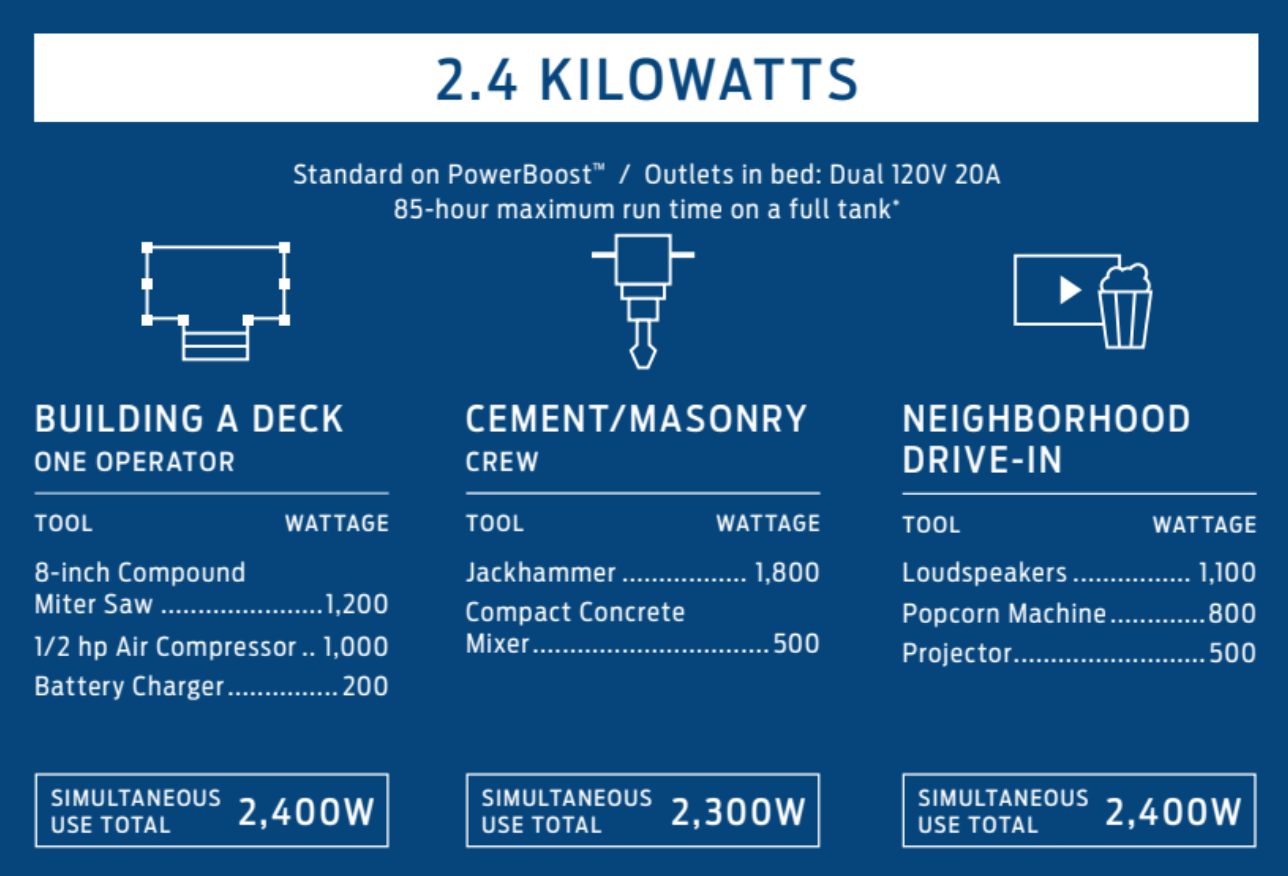
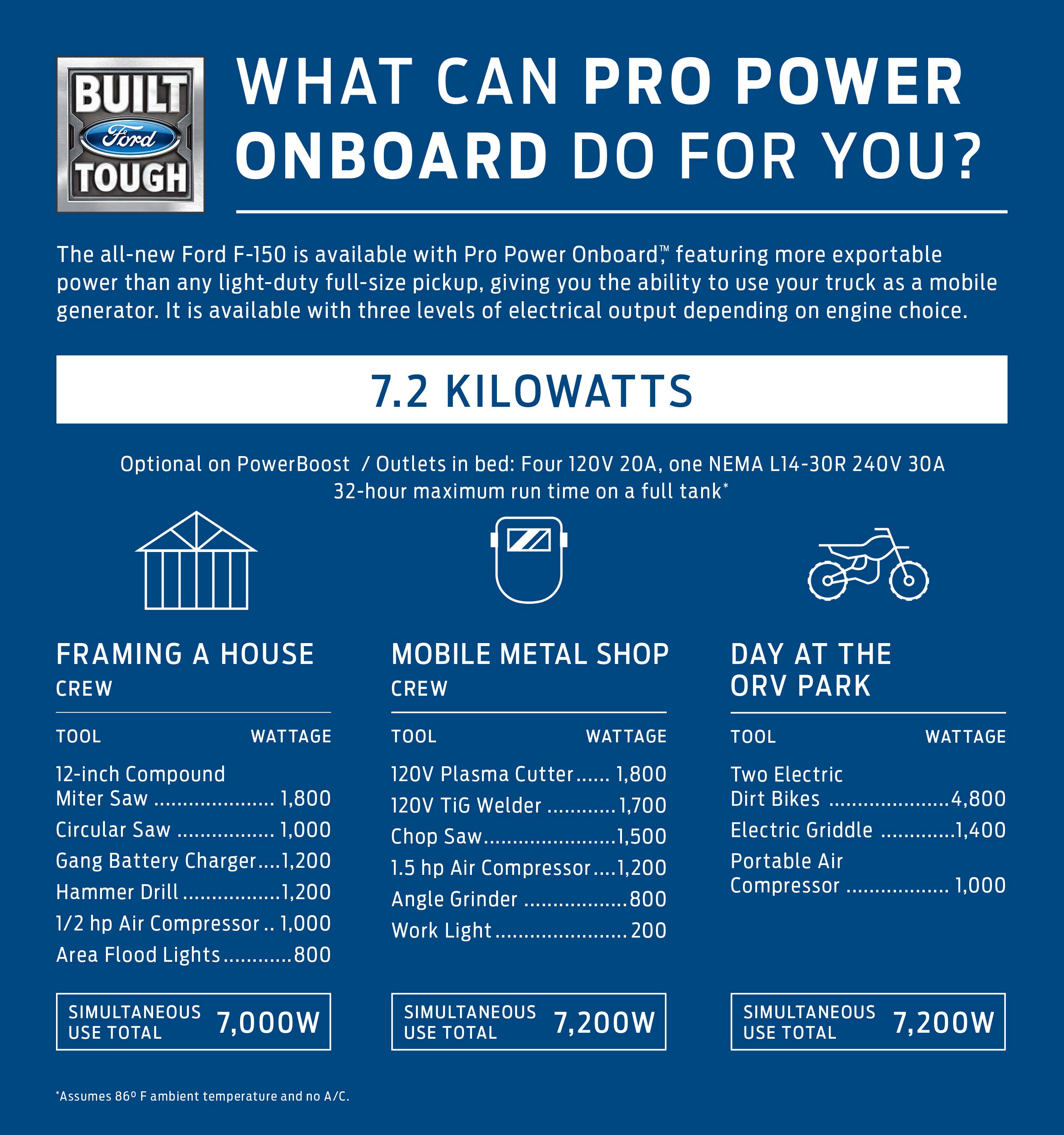
Where it does shine, however, is in the work tech department—more specifically, the Pro Power Onboard generator that's standard on PowerBoost models. The truck comes with a 2.4-kilowatt system that can be swapped for a far more capable 7.2-kilowatt setup, and it's got enough juice to power a whole construction crew...or a mobile restaurant. It provides a host bed-mounted 120V/240V plug-ins and has a 32-hour max run time on a full tank of fuel. And you thought plugging in your laptop was handy.
Undoubtedly the most significant figure that remains unknown is the F-150 PowerBoost's driving range on a single tank. Ford announced its projections of at least 700 miles per fill-up, a feat which the PowerStroke diesel half-ton has already handsomely achieved (and then some).
If you're in the market for one, you can spec any Ford F-150 with the PowerBoost drivetrain—even the base XL trim—so long as it's a crew cab. It's offered in both two- and four-wheel-drive configurations for trucks with either the 5.5- or 6.5-foot bed. That means no single cab, long bed work trucks with the most capable Pro Power Onboard system. Additionally, the PowerBoost drivetrain commands a $2,500 premium over the non-hybrid 3.5-liter EcoBoost. Gotta pay to play, I guess.
Got a tip? Send us a note: [email protected]
